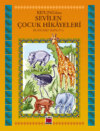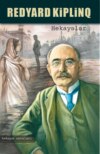Kitabı oku: «From Sea to Sea; Letters of Travel», sayfa 11
XVIII
OF THE UNCIVILISED NIGHT AND THE DEPARTURE TO THINGS CIVILISED. SHOWING HOW A FRIEND MAY KEEP AN APPOINTMENT TOO WELL.
"Let us go hence my songs, she will not hear. Let us go hence together without fear." But Ram Baksh the irrepressible sang it in altogether a baser key. He came by night to the pavilion on the lake, while the sepoys were cooking their fish, and reiterated his whine about the devildom of the country into which the Englishman had dragged him. Padre Martum Sahib would never have thus treated the owner of sixteen horses, all fast and big ones, and eight superior "shutin-tongas." "Let us get away," said Ram Baksh. "You are not here for shikar, and the water is very bad." It was indeed, except when taken from the lake, and then it only tasted fishy. "We will go, Ram Baksh," said the Englishman. "We will go in the very early morning, and in the meantime here is fish to stay your stomach with."
When a transparent piece of canvas, which fails by three feet to reach ceiling or floor, is the only bar between the East and the West, he would be a churl indeed who stood upon invidious race distinctions. The Englishman went out and fraternised with the Military – the four-rupee soldiers of Boondi who guarded him. They were armed, one with an old Tower musket crazy as to nipple and hammer, one with a native-made smooth-bore, and one with a composite contrivance – English sporting muzzle-loader stock with a compartment for a jointed cleaning-rod, and hammered octagonal native barrel, wire-fastened, a tuft of cotton on the foresight. All three guns were loaded, and the owners were very proud of them. They were simple folk, these men-at-arms, with an inordinate appetite for broiled fish. They were not always soldiers they explained. They cultivated their crops until called for any duty that might turn up. They were paid now and again, at intervals, but they were paid in coin and not in kind.
The munshis and the vakils and the runners had departed after seeing that the Englishman was safe for the night, so the freedom of the little gathering on the bund was unrestrained. The chowkidar came out of his cave into the firelight. He took a fish and incontinently choked, for he was a feeble old man. Set right again, he launched into a very long and quite unintelligible story while the sepoys said reverently: "He is an old man and remembers many things." As he babbled, the night shut in upon the lake and the valley of Boondi. The last cows were driven into the water for their evening drink, the waterfowl and the monkeys went to bed, and the stars came out and made a new firmament in the untroubled bosom of the lake. The light of the fire showed the ruled lines of the bund springing out of the soft darkness of the wooded hill on the left and disappearing into the solid darkness of a bare hill on the right. Below the bund a man cried aloud to keep wandering pigs from the gardens whose tree-tops rose to a level with the bund-edge. Beyond the trees all was swaddled in gloom. When the gentle buzz of the unseen city died out, it seemed as though the bund were the very Swordwide Bridge that runs, as every one knows, between this world and the next. The water lapped and muttered, and now and again a fish jumped, with the shatter of broken glass, blurring the peace of the reflected heavens.
"And duller should I be than some fat weed
That rolls itself at ease on Lethe's wharf."
The poet who wrote those lines knew nothing whatever of Lethe's wharf. The Englishman had found it, and it seemed to him, at that hour and in that place, that it would be good and desirable never to return to the Commissioners and the Deputy Commissioners any more, but to lie at ease on the warm sunlit bund by day, and, at night, near a shadow-breeding fire, to listen for the strangled voices and whispers of the darkness in the hills. Thus after as long a life as the chowkidar's, dying easily and pleasantly, and being buried in a red tomb on the borders of the lake. Surely no one would come to reclaim him, across those weary, weary miles of rock-strewn road… "And this," said the chowkidar, raising his voice to enforce attention, "is true talk. Everybody knows it, and now the Sahib knows it. I am an old man." He fell asleep at once, with his head on the clay pipe that was doing duty for a whole huqa among the company. He had been talking for nearly a quarter of an hour.
See how great a man is the true novelist! Six or seven thousand miles away, Walter Besant of the Golden Pen had created Mr. Maliphant – the ancient of figure-heads in the All Sorts and Conditions of Men, and here, in Boondi, the Englishman had found Mr. Maliphant in the withered flesh. So he drank Walter Besant's health in the water of the Burra Talao. One of the sepoys turned himself round, with a clatter of accoutrements, shifted his blanket under his elbow, and told a tale. It had something to do with his khet, and a gunna which certainly was not sugar-cane. It was elusive. At times it seemed that it was a woman, then changed to a right of way, and lastly appeared to be a tax; but the more he attempted to get at its meaning through the curious patois in which its doings or its merits were enveloped, the more dazed the Englishman became. None the less the story was a fine one, embellished with much dramatic gesture which told powerfully against the firelight. Then the second sepoy, who had been enjoying the pipe all the time, told a tale, the purport of which was that the dead in the tombs round the lake were wont to get up of nights and go hunting. This was a fine and ghostly story; and its dismal effect was much heightened by some clamour of the night far up the lake beyond the floor of stars.
The third sepoy said nothing. He had eaten too much fish and was fast asleep by the side of the chowkidar.
They were all Mahometans, and consequently all easy to deal with. A Hindu is an excellent person, but … but … there is no knowing what is in his heart, and he is hedged about with so many strange observances.
This Hindu or Musalman bent, which each Englishman's mind must take before he has been three years in the country, is, of course, influenced by Province or Presidency. In Rajputana generally, the Political swears by the Hindu, and holds that the Mahometan is untrustworthy. But a man who will eat with you and take your tobacco, sinking the fiction that it has been doctored with infidel wines, cannot be very bad after all.
That night when the tales were all told and the guard, bless them, were snoring peaceably in the starlight, a man came stealthily into the enclosure of canvas and woke the Englishman, muttering "Sahib, Sahib," in his ear. It was no robber but some poor devil with a petition – a grimy, welted paper. He was absolutely unintelligible, and stammered almost to dumbness. He stood by the bed, alternately bowing to the earth and standing erect, his arms spread aloft, and his whole body working as he tried to force out some rebellious word in a key that should not wake the men without. What could the Englishman do? He was no Government servant, and had no concern with petitions. The man clicked and choked and gasped in his desperate desire to make the Sahib understand. But it was no use; and in the end he departed as he had come-bowed, abject, and unintelligible.
Let every word written against Ganesh be rescinded. It was by his ordering that the Englishman saw such a dawn on the Burra Talao as he had never before set eyes on. Every fair morning is a reprint, blurred perhaps, of the First Day; but this splendour was a thing to be put aside from all other days and remembered. The stars had no fire in them and the fish had stopped jumping, when the black water of the lake paled and grew grey. While he watched it seemed to the Englishman that voices on the hills were intoning the first verses of Genesis. The grey light moved on the face of the waters till, with no interval, a blood-red glare shot up from the horizon and, inky black against the intense red, a giant crane floated out towards the sun. In the still-shadowed city the great Palace Drum boomed and throbbed to show that the gates were open, while the dawn swept up the valley and made all things clear. The blind man who said, "The blast of a trumpet is red," spoke only the truth. The breaking of the red dawn is like the blast of a trumpet.
"What," said the chowkidar, picking the ashes of the overnight fire out of his beard, "what, I say, are five eggs or twelve eggs to such a Raj as ours? What also are fowls – what are" … "There was no talk of fowls. Where is the fowl-man from whom you got the eggs?" "He is here. No, he is there. I do not know. I am an old man, and I and the Raj supply everything without price. The fowl-man will be paid by the State – liberally paid. Let the Sahib be happy. Wah. Wah."
Experience of forced labour in Himalayan villages had made the Englishman very tender in raising supplies that were given gratis; but the fowl-man could not be found, and the value of his wares was, later, paid to Ganesh – Ganesh of Situr, for that is the name of the village full of priests, through which the Englishman had passed in ignorance two days before. A double handful of sweet smelling flowers made the receipt.
Boondi was wide-awake before half-past seven in the morning. Her hunters, on foot and on horse, were filing towards the Deoli Gate. They would hunt tiger and deer they said, even with matchlocks and muzzle loaders as uncouth as those the Sahib saw. They were a merry company and chaffed the Quarter-Guard at the gate unmercifully when a bullock-cart, laden with the cases of the "Batoum Naphtha and Oil Company" blocked the road. One of them had been a soldier of the Queen, and, excited by the appearance of a Sahib, did so rebuke and badger the Quarter-Guard for their slovenliness that they threatened to come out of the barracks and destroy him.
So, after one last look at the Palace high up the hillside, the Englishman was borne away along the Deoli Road. The peculiarity of Boondi is the peculiarity of the covered pitfall. One does not see it till one falls into it. A quarter of a mile from the gate, town and Palace were invisible. But the Englishman was grieved at heart. He had fallen in love with Boondi the beautiful, and believed that he would never again see anything half so fair. The utter untouchedness of the town was one-half the charm and its association the other. Read Tod, who is far too good to be chipped or sampled; read Tod luxuriously on the bund of the Burra Talao, and the spirit of the place will enter into you and you will be happy.
To enjoy life thoroughly, haste and bustle must be abandoned. Ram Baksh has said that Englishmen are always bothering to go forward, and for this reason, though beyond doubt they pay well and readily, are not wise men. He gave utterance to this philosophy after he had mistaken his road and pulled up in what must have been a disused quarry hard by a cane-field. There were patches and pockets of cultivation along the rocky road, where men grew cotton, chillies, tobacco, and sugar-cane. "I will get you sugar-cane," said Ram Baksh. "Then we will go forward, and perhaps some of these jungly-fools will tell us where the road is." A "jungly fool," a tender of goats, did in time appear, but there was no hurry; the sugar-cane was sweet and purple and the sun warm.
The Englishman lay out at high noon on the crest of a rolling upland crowned with rock, and heard, as a loafer had told him he would hear, the "set of the day," which is as easily discernible as the change of tone between the rising and the falling tide. At a certain hour the impetus of the morning dies out, and all things, living and inanimate, turn their thoughts to the prophecy of the coming night. The little wandering breezes drop for a time, and, when they blow afresh, bring the message. The "set of the day," as the loafer said, has changed, the machinery is beginning to run down, the unseen tides of the air are falling. This moment of change can only be felt in the open and in touch with the earth, and once discovered, seems to place the finder in deep accord and fellowship with all things on earth. Perhaps this is why the genuine loafer, though "frequently drunk," is "always polite to the stranger," and shows such a genial tolerance towards the weaknesses of mankind, black, white, or brown.
In the evening when the jackals were scuttling across the roads and the cranes had gone to roost, came Deoli the desolate, and an unpleasant meeting. Six days away from his kind had bred in a Cockney heart a great desire to see a fellow-subject. An elaborate loaf through the cantonment – fifteen minutes' walk from end to end – showed only one distant dog-cart and a small English child with an ayah. There was grass in the soldierly straight roads, and some of the cross-cuts had never been used at all since the days when the cantonment had been first laid out. In the western corner lay the cemetery – the only carefully tended and newly whitewashed thing in this God-forgotten place. Some years ago a man had said good-by to the Englishman; adding cheerily: "We shall meet again. The world's a very little place y' know."
His prophecy was a true one, for the two met indeed, but the prophet was lying in Deoli Cemetery near the well, which is decorated so ecclesiastically with funeral urns.
XIX
COMES BACK TO THE RAILWAY, AFTER REFLECTIONS ON THE MANAGEMENT OF THE EMPIRE; AND SO HOME AGAIN, WITH APOLOGY TO ALL WHO HAVE READ THUS FAR.
In the morning the tonga rattled past Deoli Cemetery into the open, where the Deoli Irregulars were drilling. They marked the beginning of civilisation and white shirts; and so they seemed altogether detestable. Yet another day's jolting, enlivened by the philosophy of Ram Baksh, and then came Nasirabad. The last pair of ponies suggested serious thought. They had covered eighteen miles at an average speed of eight miles an hour, and were well-conditioned little rats. "A Colonel Sahib gave me this one for a present," said Ram Baksh, flicking the near one. "It was his child's pony. The child was five years old." When he went away, the Colonel Sahib said: "Ram Baksh, you are a good man. Never have I seen such a good man. This horse is yours." Ram Baksh was getting a horse's work out of a child's pony. Surely we in India work the land much as the Colonel Sahib worked his son's mount; making it do child's work when so much more can be screwed out of it. A native and a native State deals otherwise with horse and holding. Perhaps our extreme scrupulousness in handling may be statecraft, but, after even a short sojourn in places which are dealt with not so tenderly, it seems absurd. There are States where things are done, and done without protest, that would make the hair of the educated native stand on end with horror. These things are of course not expedient to write; because their publication would give a great deal of unnecessary pain and heart-searching to estimable native administrators who have the hope of a Star before their eyes and would not better matters in the least.
Note this fact though. With the exception of such journals as, occupying a central position in British territory, levy blackmail from the neighbouring States, there are no independent papers in Rajputana. A King may start a weekly, to encourage a taste for Sanskrit and high Hindi, or a Prince may create a Court Chronicle; but that is all. A "free press" is not allowed, and this the native journalist knows. With good management he can, keeping under the shadow of our flag, raise two hundred rupees from a big man here, and five hundred from a rich man there, but he does not establish himself across the Border. To one who has reason to hold a stubborn disbelief in even the elementary morality of the native press, this bashfulness and lack of enterprise is amusing. But to return to the native States' administrations. There is nothing exactly wrong in the methods of government that are overlaid with English terms and forms. They are vigorous, in certain points; and where they are not vigorous, there is a cheery happy-go-luckiness about the arrangement that must be seen to be understood. The shift and play of a man's fortune across the Border is as sudden as anything in the days of Haroun-al-Raschid of blessed memory, and there are stories, to be got for the unearthing, as wild and as improbable as those in the Thousand and One Nights. Most impressive of all is the way in which the country is "used," and its elasticity under pressure. In the good old days the Durbar raised everything it could from the people, and the King spent as much as ever he could on his personal pleasures. Now the institution of the Political agent has stopped the grabbing, for which, by the way, some of the monarchs are not in the least grateful – and smoothed the outward face of things. But there is still a difference, between our ways and the ways of the other places. A year spent among native States ought to send a man back to the Decencies and the Law Courts and the Rights of the Subject with a supreme contempt for those who rave about the oppressions of our brutal bureaucracy. One month nearly taught an average Englishman that it was the proper thing to smite anybody of mean aspect and obstructive tendencies on the mouth with a shoe. Hear what an intelligent loafer said. His words are at least as valuable as these babblings. He was, as usual, wonderfully drunk, and the gift of speech came upon him. The conversation – he was a great politician, this loafer – had turned on the poverty of India. "Poor?" said he. "Of course, it's poor. Oh, yes, d – d poor. And I'm poor, an' you're poor, altogether. Do you expect people will give you money without you ask 'em? No, I tell you, Sir, there's enough money in India to pave Hell with if you could only get at it. I've kep' servants in my day. Did they ever leave me without a hundred or a hundred and fifty rupees put by – and never touched? You mark that. Does any black man who had been in Guv'ment service go away without hundreds an' hundreds put by, and never touched? You mark that. Money? The place stinks o' money – just kept out o' sight. Do you ever know a native that didn't say Garib admi (I'm a poor man)? They've been sayin' Garib admi so long that the Guv'ment learns to believe 'em, and now they're all bein' treated as though they was paupers. I'm a pauper, an' you're a pauper —we 'aven't got anything hid in the ground – an' so's every white man in this forsaken country. But the Injian he's a rich man. How do I know? Because I've tramped on foot, or warrant pretty well from one end of the place to the other, an' I know what I'm talkin' about, and this 'ere Guv'ment goes peckin' an' fiddlin' over its tuppenny-ha'penny little taxes as if it was afraid. Which it is. You see how they do things in – . It's six sowars here, and ten sowars there, and – 'Pay up, you brutes, or we'll pull your ears over your head.' And when they've taken all they can get, the headman, he says: 'This is a dashed poor yield. I'll come again.' Of course the people digs up something out of the ground, and they pay. I know the way it's done, and that's the way to do it. You can't go to an Injian an' say: 'Look here. Can you pay me five rupees?' He says: 'Garib admi,' of course, an' would say it if he was as rich as banker. But if you send half a dozen swords at him and shift the thatch off of his roof, he'll pay. Guv'ment can't do that. I don't suppose it could. There is no reason why it shouldn't. But it might do something like it, to show that it wasn't going to have no nonsense. Why, I'd undertake to raise a hundred million – what am I talking of? – a hundred and fifty million pounds from this country per annum, and it wouldn't be strained then. One hundred and fifty millions you could raise as easy as paint, if you just made these 'ere Injians understand that they had to pay an' make no bones about it. It's enough to make a man sick to go in over yonder to – and see what they do; and then come back an' see what we do. Perfectly sickenin' it is. Borrer money? Why the country could pay herself an' everything she wants, if she was only made to do it. It's this blooomin' Garib admi swindle that's been going on all these years, that has made fools o' the Guv'ment."
Then he became egotistical, this ragged ruffian who conceived that he knew the road to illimitable wealth and told the story of his life, interspersed with anecdotes that would blister the paper they were written on. But through all his ravings, he stuck to his hundred-and-fifty-million theory, and though the listener dissented from him and the brutal cruelty with which his views were stated, an unscientific impression remained not to be shaken off. Across the Border one feels that the country is being used, exploited, "made to sit up," so to speak. In our territories the feeling is equally strong of wealth "just round the corner," as the loafer said, of a people wrapped up in cotton wool and ungetatable. Will any man, who really knows something of a little piece of India and has not the fear of running counter to custom before his eyes, explain how this impression is produced, and why it is an erroneous one?
Nasirabad marked the end of the Englishman's holiday, and there was sorrow in his heart. "Come back again," said Ram Baksh, cheerfully, "and bring a gun with you. Then I'll take you to Gungra, and I'll drive you myself. 'Drive you just as well as I've driven these four days past." An amicable open-minded soul was Ram Baksh. May his tongas never grow less!
"This 'ere Burma fever is a bad thing to have. It's pulled me down awful; an' now I am going to Peshawar. Are you the Station-master?" It was Thomas – white-cheeked, sunken-eyed, drawn-mouthed Thomas – travelling from Nasirabad to Peshawar on pass; and with him was a Corporal new to his stripes and doing station duty. Every Thomas is interesting, except when he is too drunk to speak. This Thomas was an enthusiast. He had volunteered, from a Home-going regiment shattered by Burma fever, into a regiment at Peshawar, had broken down at Nasirabad on his way up with his draft, and was now journeying into the unknown to pick up another medal. "There's sure to be something on the Frontier," said this gaunt, haggard boy – he was little more, though he reckoned four years' service and considered himself somebody. "When there's anything going, Peshawar's the place to be in, they tell me; but I hear we shall have to march down to Calcutta in no time." The Corporal was a little man and showed his friend off with great pride: "Ah, you should have come to us," said he; "we're the regiment, we are." "Well, I went with the rest of our men," said Thomas. "There's three hundred of us volunteered to stay on, and we all went for the same regiment. Not but what I'm saying yours is a good regiment," he added with grave courtesy. This loosed the Corporal's tongue, and he descanted on the virtues of the regiment and the merits of the officers. It has been written that Thomas is devoid of esprit de corps, because of the jerkiness of the arrangements under which he now serves. If this be true, he manages to conceal his feelings very well; for he speaks most fluently in praise of his own regiment; and, for all his youth, has a keen appreciation of the merits of his officers. Go to him when his heart is opened, and hear him going through the roll of the subalterns, by a grading totally unknown in the Army List, and you will pick up something worth the hearing. Thomas, with the Burma fever on him, tried to cut in, from time to time, with stories of his officers and what they had done "when we was marchin' all up and down Burma," but the little Corporal went on gayly.
They made a curious contrast – these two types. The lathy, town-bred Thomas with hock-bottle shoulders, a little education, and a keen desire to get more medals and stripes; and the little, deep-chested, bull-necked Corporal brimming over with vitality and devoid of any ideas beyond the "regiment." And the end of both lives, in all likelihood, would be a nameless grave in some cantonment burying-ground with, if the case were specially interesting and the Regimental Doctor had a turn for the pen, an obituary notice in the Indian Medical Journal. It was an unpleasant thought.
From the Army to the Navy is a perfectly natural transition, but one hardly to be expected in the heart of India. Dawn showed the railway carriage full of riotous boys, for the Agra and Mount Abu schools had broken up for holidays. Surely it was natural enough to ask a child – not a boy, but a child – whether he was going home for the holidays; and surely it was a crushing, a petrifying thing to hear in a clear treble tinged with icy scorn: "No. I'm on leave. I'm a midshipman." Two "officers of Her Majesty's Navy" – mids of a man-o'-war at Bombay – were going up-country on ten days' leave. They had not travelled much more than twice round the world; but they should have printed the fact on a label. They chattered like daws, and their talk was as a whiff of fresh air from the open sea, while the train ran eastward under the Aravalis. At that hour their lives were bound up in and made glorious by the hope of riding a horse when they reached their journey's end. Much had they seen "cities and men," and the artless way in which they interlarded their conversation with allusions to "one of those shore-going chaps, you see," was delicious. They had no cares, no fears, no servants, and an unlimited stock of wonder and admiration for everything they saw, from the "cute little well-scoops" to a herd of deer grazing on the horizon. It was not until they had opened their young hearts with infantile abandon that the listener could guess from the incidental argot where these pocket-Ulysseses had travelled. South African, Norwegian, and Arabian words were used to help out the slang of shipboard, and a copious vocabulary of shipboard terms, complicated with modern Greek. As free from self-consciousness as children, as ignorant as beings from another planet of the Anglo-Indian life into which they were going to dip for a few days, shrewd and observant as befits men of the world who have authority, and neat-handed and resourceful as – blue-jackets, they were a delightful study, and accepted freely and frankly the elaborate apologies tendered to them for the unfortunate mistake about the "holidays." The roads divided and they went their way; and there was a shadow after they had gone, for the Globe-trotter said to his wife, "What I like about Jeypore" – accent on the first syllable, if you please – "is its characteristic easternness." And the Globe-trotter's wife said: "Yes. It is purely Oriental."
This was Jeypore with the gas-jets and the water-pipes as was shown at the beginning of these trivial letters; and the Globe-trotter and his wife had not been to Amber. Joyful thought! They had not seen the soft splendours of Udaipur, the nightmare of Chitor, the grim power of Jodhpur, and the virgin beauties of Boondi – fairest of all places that the Englishman had set eyes on. The Globe-trotter was great in the matter of hotels and food, but he had not lain under the shadow of a tonga in soft warm sand, eating cold pork with a pocket-knife, and thanking Providence who put sweet-water streams where wayfarers wanted them. He had not drunk out the brilliant cold-weather night in the company of a King of Loafers, a grimy scallawag with a six days' beard and an unholy knowledge of native States. He had attended service in cantonment churches; but he had not known what it was to witness the simple, solemn ceremonial in the dining room of a far-away Residency, when all the English folk within a hundred-mile circuit bowed their heads before the God of the Christians. He had blundered about temples of strange deities with a guide at his elbow; but he had not known what it was to attempt conversation, with a temple dancing-girl (not such an one as Edwin Arnold invented), and to be rewarded for a misturned compliment with a deftly heaved bunch of marigold buds in his respectable bosom. Yet he had undoubtedly lost much, and the measure of his loss was proven in his estimate of the Orientalism of Jeypore.
But what had he who sat in judgment upon him gained? One perfect month of loaferdom, to be remembered above all others and the night of the visit to Chitor, to be remembered even when the month is forgotten. Also the sad knowledge that of all the fair things seen, the inept pen gives but a feeble and blurred picture.
Let those who have read to the end, pardon a hundred blemishes.










